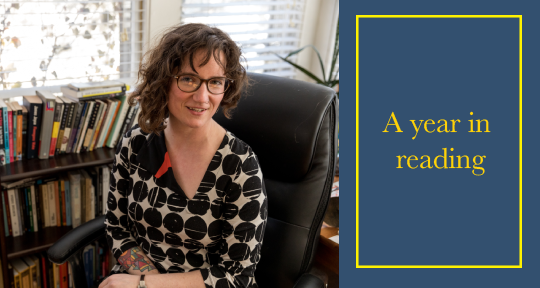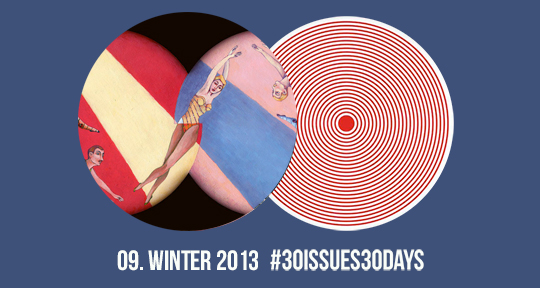Though Asymptote is winding down with the year, literary events and going-ons continue to thrive around the globe. In Mexico, the Guadalajara International Book Fair presents its impressive line-up, and Polish female poets are celebrated in a new collection. In Bulgaria, the Christmas Book Fair returns to delight the locals. and in Romania, the Gaudeamus Book Fair features over one hundred exciting events. Read on to find out more!
Alan Mendoza Sosa, Editor-at-Large, reporting from Mexico
On December 10, Mexican editor, poet, and translator Isabel Zapata presented Dentro del bosque, an English-Spanish translation of the autobiographical essay Into the Woods by American author Emily Gould. The essay reflects on contemporary capitalist precarity through Gould’s personal experience as a young woman trying to make a living as a writer in New York City. Originally published in 2014, its translation into Spanish is part of the Editor’s Collection from Gris Tormenta, an independent publisher based in Querétaro, a rapidly growing state three hours north of Mexico City. Gris Tormenta has published several Asymptote contributors in the past, including Yuri Herrera, Tedi López Mills, and Thomas Bernhard.
On December 4, Mexican poet Rocío Cerón and Polish poet Marta Eloy Cichocka presented Luz que fue sombra, a Polish-Spanish bilingual collection of seventeen Polish female poets born between 1963 and 1981, translated by Abel Murcia and Gerardo Beltrán. The book was published in the Spanish independent press Vaso Roto, which has published Spanish translations of important authors such as Anne Carson, John Ashbery, and Ocean Vuong. It includes poems by Justyna Bargielska, Barbara Klicka, Krystyna Dąbrowska, and Urszula Zajączkowska. Julia Fiedorczuk, whose book Oxygen was reviewed for Asymptote by Elisa González, is one of the most renowned authors in the collection. The event took place in Talleres de Arte Contemporáneo (TACO), a cultural centre south of Mexico City dedicated to promoting and teaching contemporary art.
The 35th edition of the Guadalajara International Book Fair took place in Guadalajara, one of Mexico’s largest cities, between November 27 and December 5. It is considered one of the most important book festivals in Latin America. This year, the guest of honor was Peru, from where several important authors and artists travelled to Mexico to present their work, lead workshops, and host panels. Among them was Asymptote contributor Victoria Guerrero. Importantly, the events featuring Peru offered significant representation of literature written in indigenous languages, including books by Dina Ananco Ahuananchi, Gabriel Pacheco, Cha’ska Ninawaman, and Washington Córdova. The fair also featured both emerging and established authors from all over the world. Many of them have previously appeared in Asymptote, such as Ana Luísa Amaral, Georgi Gospodinov, Abdellah Taïa, Marieke Lucas Rijneveld, and Alejandro Zambra.
Andriana Hamas, Editor-at-Large, reporting from Bulgaria
Bulgaria has, for a long time now, been in the grips of mass paranoia, an all-encompassing misinformation campaign, and political turmoil. The health situation also not looking up; according to official statistics, the COVID-19 deaths are, sadly, approaching the chilling number of 30 000 since the beginning of the pandemic—a figure that definitely cannot be trivialised given the overall population. READ MORE…








